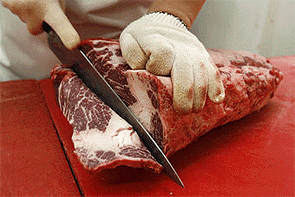
By Allan Barber
An analysis of the beef trade with Indonesia illustrates the difficulties associated with diversification away from traditional markets.
While alternatives to the USA, Canada and North Asia are desirable, for beef as well as offal and co-products which add significant value to the carcass, exporters must be prepared for frustrations caused by volatility in countries where they try to diversify their sales efforts.
In 2000 exports to the USA accounted for 71% of our beef sales, the next five markets (South Korea, Japan, Canada, Taiwan and Indonesia) made up 18% and the rest of the world the remaining 11%. By 2011 the USA had fallen to 42%, the same five markets comprised 39% and the rest 19%.
Over the same period the value of beef exports rose from less than $1.5 billion to over $2 billion, of which the USA accounts for 38%, the next five markets 35% and the rest of the world 26%.
I suspect very few people outside the beef industry would have any idea New Zealand exporters had diversified so successfully, let alone achieved a massive value increase from offal and co-products.
New Zealand exporters could be forgiven for thinking trading with Indonesia would become a whole lot easier now the world’s fourth most populous nation has joined ASEAN, but it seems it will still be a frustrating exercise trying to do business there.
Fiona Acheson, NZ Trade Commissioner for Indonesia, Malaysia and Brunei, stated over 90% of our goods and services would have duty and tariff free access by 2015, with Indonesia’s economy running at an annual growth rate of 6% and poised to overtake Mexico, Turkey and South Korea before then.
Indonesia has recently released its economic development master plan to 2025 which includes a goal to boost agricultural productivity, currently contributing 12% of GDP.
Here Acheson sees a big opportunity to build on our position as a recognised agriculture and food security partner for Indonesia.
This is where it starts to get tricky, at least for our beef industry which on the face of it already benefits from a low tariff of 5% on exports to Indonesia. However this conceals the impact of quotas.
In 2010 Indonesia became New Zealand’s second largest customer by tonnage and fourth largest by value for beef exports, but in 2011 quota limitations, especially during the early part of the year, cut that volume by 40%.
2012 is even more tightly constrained – whereas beef imports in 2010 totaled 120,000 tonnes, dropping to 90,000 in 2011 after an increase in the original 50,000 tonne quota, this year’s quota has been reduced to 34,000.
Even though this figure will undoubtedly increase, this casts serious doubts about Indonesia’s reliability as a trading partner, so long as domestic politics play such a significant role in its decisions.
Offal exports to Indonesia, another important part of New Zealand’s export trade, are also threatened by the arbitrary introduction of restrictions. Between 2001 and 2010 offal exports to Indonesia almost trebled to the point where it became easily our largest market for offal products such as liver, heart and beef feet. Restrictions in 2011 saw offal exports fall by almost 5000 tonnes, still marginally ahead of South Korea, but likely to decline further this year because of limitations on certain types of offal, ostensibly for health and food safety reasons.
The point made by several exporting countries is these objections are not science based, do not comply with WTO rules and discriminate unfairly between domestic and imported product.
According to high level statements from the Indonesian government, its goal is to achieve self sufficiency in a number of products including meat by 2014. The political uncertainty is exacerbated by jockeying for position in the race to become Indonesia’s next President at this year’s elections.
The Indonesian Meat Importers Association says the government’s decision to place this level of quota on live cattle, boxed beef and offal imports from all sources is too hasty and will fall seriously short of satisfying domestic demand. If the government persists, it will result either in liquidation of the Indonesian beef herd or prices going through the roof, neither of which is sustainable, whether in practical or political terms.
The road to diversification is still littered with potholes.
--------------------------
Allan Barber is a commentator on agribusiness, especially the meat industry, and lives in the Matakana Wine Country where he run a boutique B&B with his wife. You can contact him by email at allan@barberstrategic.co.nz or through his blog at http://allan.barber.wordpress.com.

We welcome your comments below. If you are not already registered, please register to comment
Remember we welcome robust, respectful and insightful debate. We don't welcome abusive or defamatory comments and will de-register those repeatedly making such comments. Our current comment policy is here.